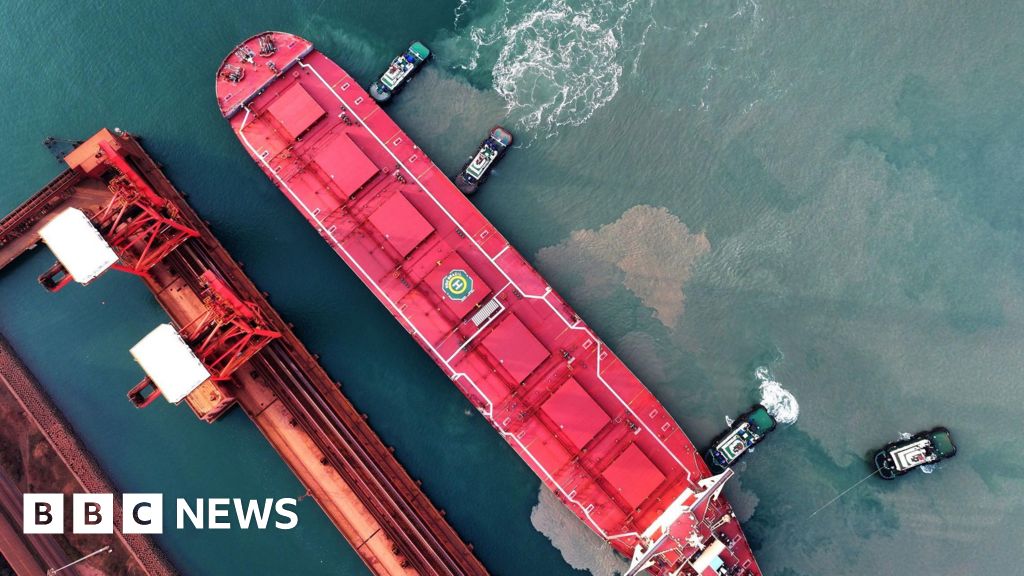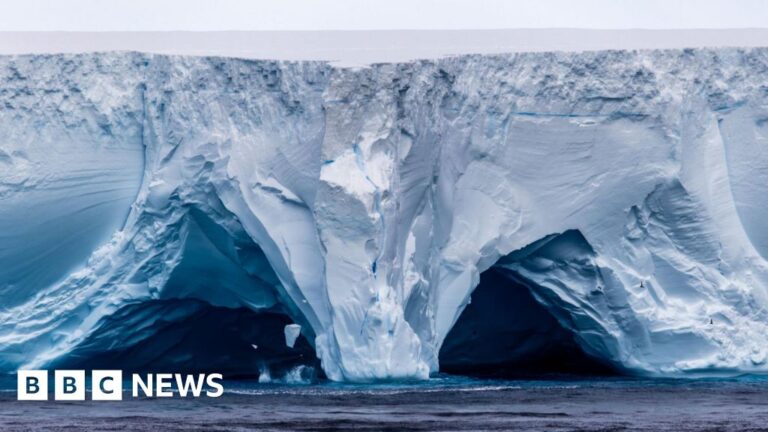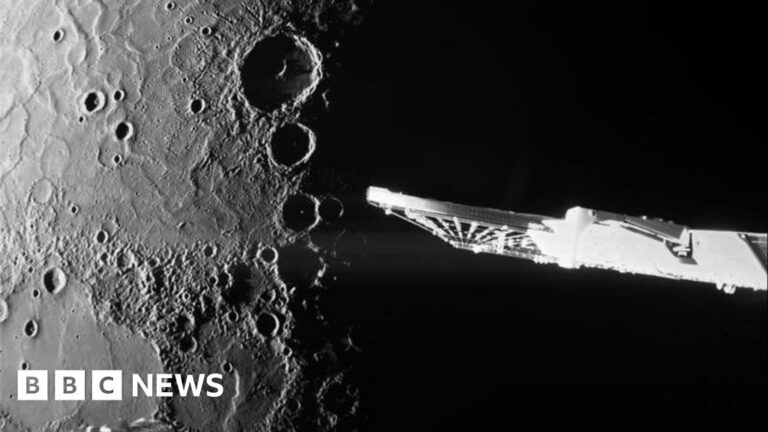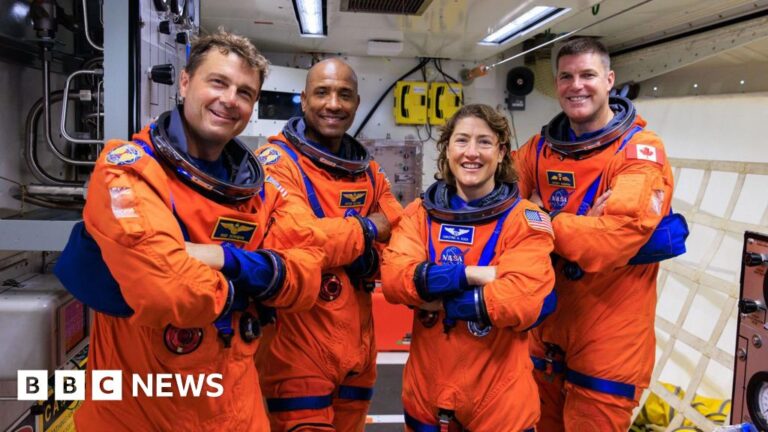Here is the plain text result without any HTML or XML tags:
Countries have agreed a global deal to tackle shipping emissions, after nearly ten years of negotiations. The agreement covers the vast majority of the world’s commercial shipping and means that starting in 2028, ship owners will have to use increasingly cleaner fuels or face fines.
Shipping accounts for around 3% of global emissions. But unlike many other sectors it has struggled to reduce its carbon footprint over the last decade and is reliant on fossil fuels like diesel.
The agreement was passed at the UN’s International Maritime Organisation (IMO) meeting. It will require owners of large international vessels to increase their use of less carbon intensive fuels or face a penalty of up to $380 per tonne of carbon dioxide emissions they emit from burning fuel.
Although the final agreement was passed, it had to be put to a vote – an unusual move for UN bodies that usually agree measures by consensus. The vote was requested by Saudi Arabia, who did not support the agreement, and this position was shared by a dozen other oil-producing nations, including Russia.
There have been moves to improve the efficiency of ships, but emissions have continued to increase in line with global trade – 90% of which is carried by ships. The most effective measure would be to switch ships away from fossil fuels to green fuels, but that would be very expensive.
Some island states also abstained and said the deal was a watered down version of what they hoped for. An earlier proposal to apply a blanket carbon tax or levy – which would have been a world first – was dropped.
It is estimated that the agreement could achieve an 8% reduction in emissions for the sector by 2030, according to the maritime consultancy UMAS. This would be short of the IMO’s target agreed two years ago to cut emissions by 20% by the end of the decade.
Any money raised from the penalties will be put into a “Net Zero” fund, with money spent on scaling up greener fuels and supporting developing countries.
Source link




